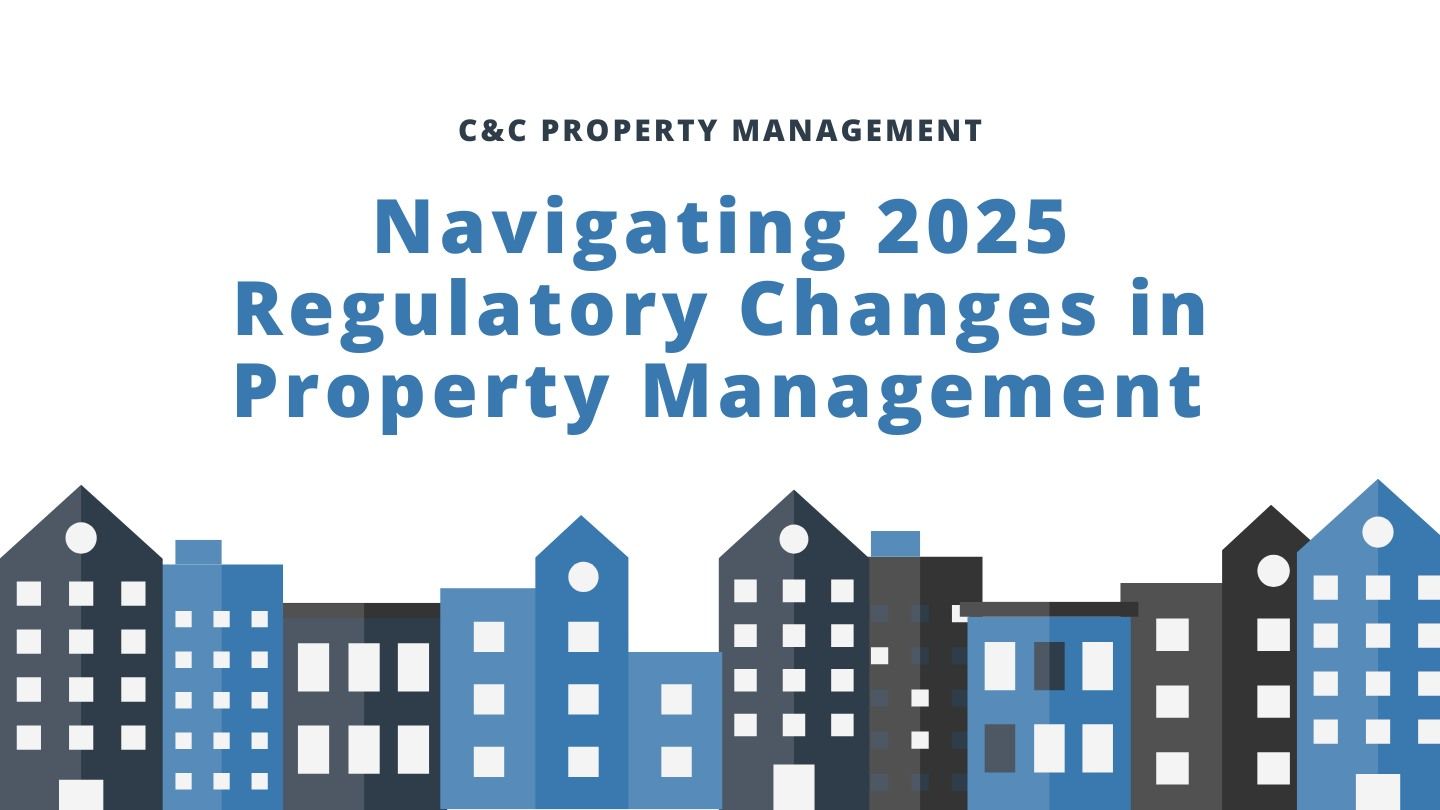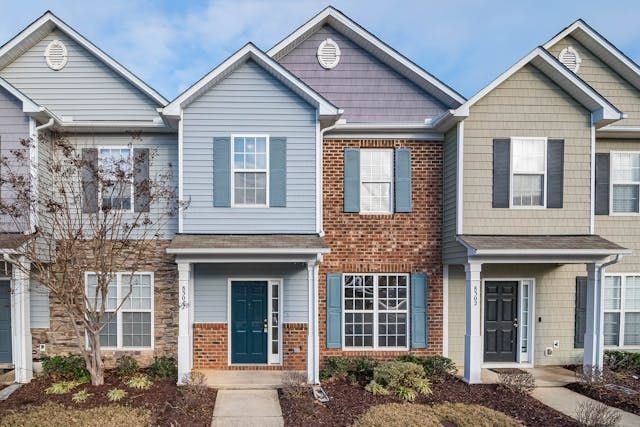Navigating 2025 Regulatory Changes in Property Management

Key Takeaways
- New Rules Demand Attention: California’s 2025 updates tighten regulations on rent increases, tenant protections, and energy standards, making compliance more complex for landlords.
- Energy Codes Are Changing: Projects permitted after January 1, 2026, must meet California’s 2025 efficiency and electrification standards. Planning renovations early can save time and money.
- Privacy and Transparency Matter: Landlords must follow new privacy rules for tenant data and clearly disclose all rental fees and screening criteria to stay compliant.
- Professional Management Reduces Risk: Partnering with a property management company like C&C Property Management helps landlords track changing regulations, avoid fines, and protect their investments.
Are you prepared for the regulatory changes that will affect landlords in 2025? New rules on rent increases, tenant protections, energy standards, and data privacy are affecting how owners operate rental properties. Small mistakes can lead to fines, lost income, or costly legal disputes.
C&C Property Management put together this article to help landlords understand the biggest changes coming in 2025 and what practical steps to take now.
What Is Changing in 2025?
First, many states and cities are strengthening tenant protections and limiting how much and how often landlords can increase rent. In California, statewide limits on annual rent increases remain in effect, and local ordinances can add stricter caps. Landlords must follow notice and documentation rules when raising rent.
Second, energy and building standards are being updated. California adopted a 2025 energy code that encourages electric heating and efficiency upgrades. New construction and many remodels with permits submitted on or after January 1, 2026, will need to meet the 2025 standards. That timing means decisions made now about renovations will affect compliance costs.
Third, data privacy is becoming a compliance priority. Several states have or are adopting comprehensive consumer privacy laws that affect how landlords collect, store, and share tenant information. These laws can require new notices, opt-out options, or careful records of data handling.
Finally, local governments continue to expand tenant protections such as longer notice periods, limits on reasons for eviction, and restrictions on
tenant screening criteria. Several states and cities enacted new protections in 2025, and more local ordinances are under discussion. Landlords must track both state law and city-level rules where their properties are located.

Key Regulatory Areas and 2025 Actions for California Landlords
1. Rent Increases and Rent Control Updates
What to know:
- California’s statewide rent cap remains in effect, but several cities and counties have introduced stricter local limits for 2025.
- Written notice is still required for all rent increases, with additional documentation rules in some areas.
What to do:
- Review each lease to confirm whether it falls under local or state rent control.
- Keep dated records of rent calculations and notices.
- If you plan to raise rent, consider phasing increases or aligning them with approved improvements to stay compliant.
2. Evictions and Tenant Protections
What to know:
- More jurisdictions now require longer notice periods and specific legal grounds for evictions.
- Some areas have added mediation or documentation steps before a case can be filed.
What to do:
- Update your eviction policies and train staff to follow new local timelines.
- Keep written records of all tenant communications, payments, and notices to prevent disputes.
3. Energy, Safety, and Building Compliance
What to know:
- California is phasing in new energy efficiency and electrification standards for building permits issued on or after January 1, 2026.
- Certain remodels or unit reissues may trigger upgrade requirements under local ordinances.
What to do:
- Before starting renovations, confirm with your local permit office which codes will apply.
- Budget for higher efficiency systems and explore available state or federal tax credits for upgrades made before December 31, 2025.

4. Tenant Data and Privacy
What to know:
- California’s evolving privacy laws give tenants the right to know what personal data is collected, and to request corrections or deletion.
- Using digital leasing tools or online portals increases your responsibility for secure data handling.
What to do:
- Audit your data collection and storage practices. Limit data to what’s necessary and protect all records.
- Add a clear privacy notice to applications, lease documents, and portals explaining how tenant information is used.
5. Fees, Screening, and Transparency
What to know:
- 2025 enforcement trends focus on transparent fees and fair screening.
- Some local governments now require itemized disclosure of move-in costs, application fees, and damage policies.
What to do:
- Provide a written fee schedule with every rental application.
- Use consistent screening criteria and document how each decision is made to show equal opportunity and compliance with
Fair Housing laws.
Regional Differences
Local variation matters more now than ever. State laws set baseline rules, but cities and counties can add requirements or protections that change day-to-day operations. For example, a rent increase that is legal in one California city may be limited in another. Track updates from the jurisdictions where you own property and update lease forms and staff training accordingly.
Practical Compliance Checklist for Landlords
- Audit all active leases for rent cap and termination clauses.
- Standardize written notices and keep date-stamped copies.
- Review planned construction or permits with code officials to confirm which energy rules apply.
- Conduct a data privacy audit and add tenant privacy notices where needed.
- Update tenant screening and fee disclosure templates.
- Train staff on new notice periods, eviction procedures, and documentation requirements.
- Create a compliance calendar for permit deadlines and law-effective dates.

Cost, Risk, and Opportunity
Compliance has costs. Upgrades and new processes can require investment. The risk of noncompliance includes fines and legal fees. At the same time, meeting higher standards can create advantages. Energy-efficient units can attract tenants and reduce operating costs. Clear communication and professional management can reduce vacancies and disputes. Treat compliance as an investment in long-term stability.
Why Hiring a Property Management Company Makes Sense in 2025
Rules are more complex and change faster. A professional property manager monitors local and state law changes, maintains compliance calendars, and ensures consistent paperwork and communication. Managers also have vendors and contractors on hand to execute energy or safety upgrades efficiently.
For landlords with multiple units or those who
don’t live near their properties, a management company reduces exposure to legal errors and missed deadlines.
Bottom Line
Regulatory changes in 2025 increase the responsibilities of landlords. Rent limits, stronger tenant protections, updated energy codes, and data privacy rules require active compliance. Landlords who audit leases, update processes, and budget for necessary upgrades will reduce legal and financial risk and may gain operational benefits.
C&C Property Management can handle these tasks for you. We provide local compliance monitoring, standardize lease and disclosure documents, manage required notices and evictions correctly, and coordinate energy and safety upgrades with licensed contractors.
If you want to reduce risk and free up time, contact C&C Property Management to schedule a compliance review and property assessment. Act now to protect income and property value.








